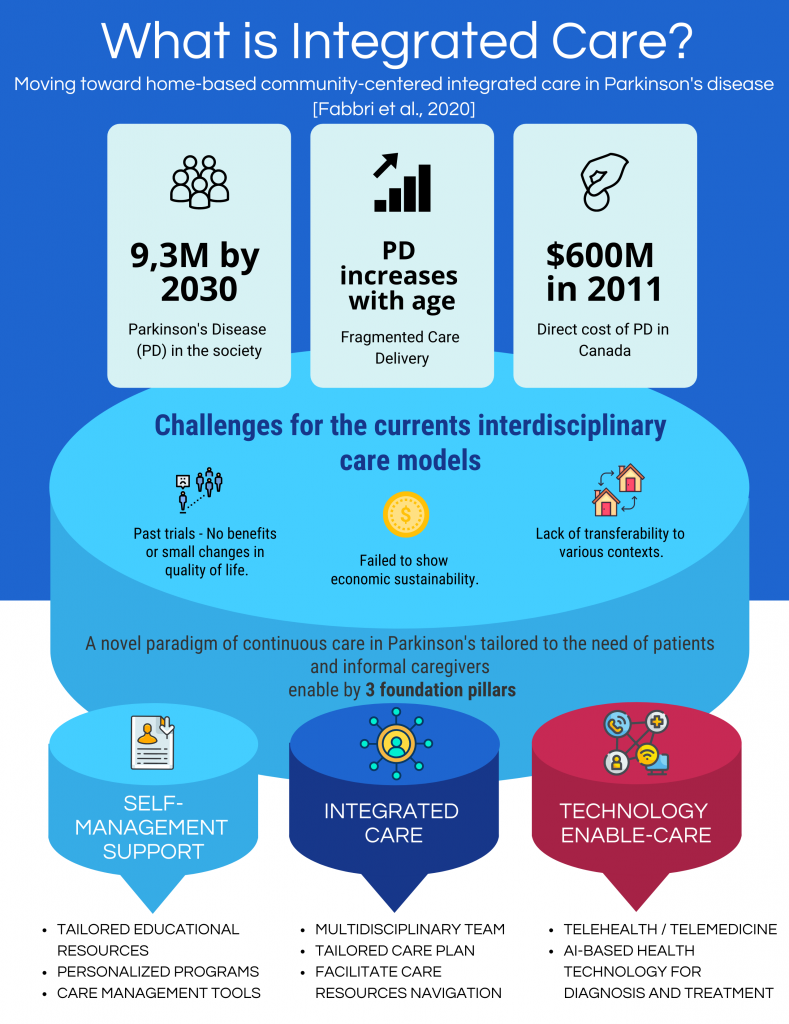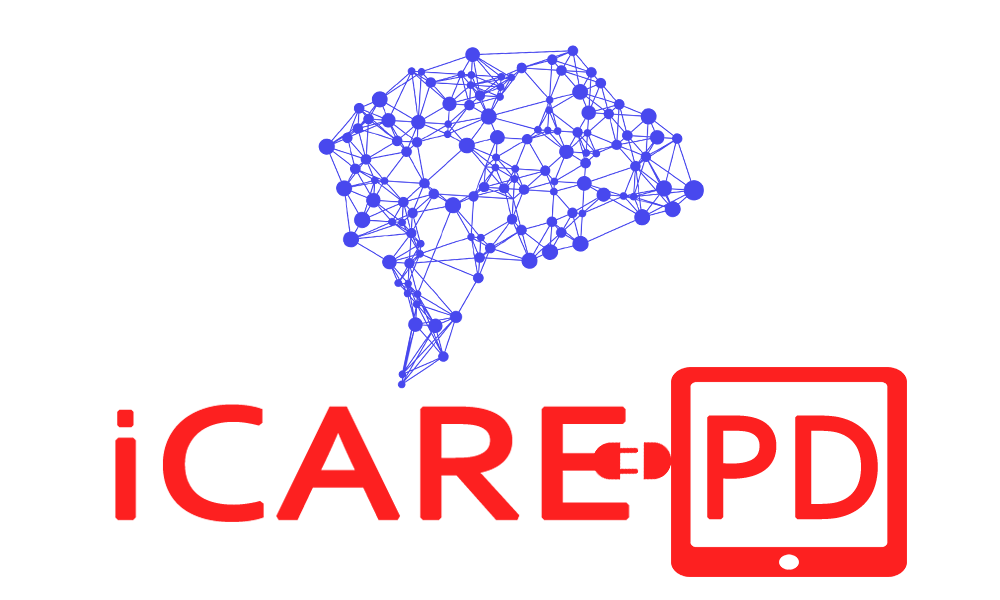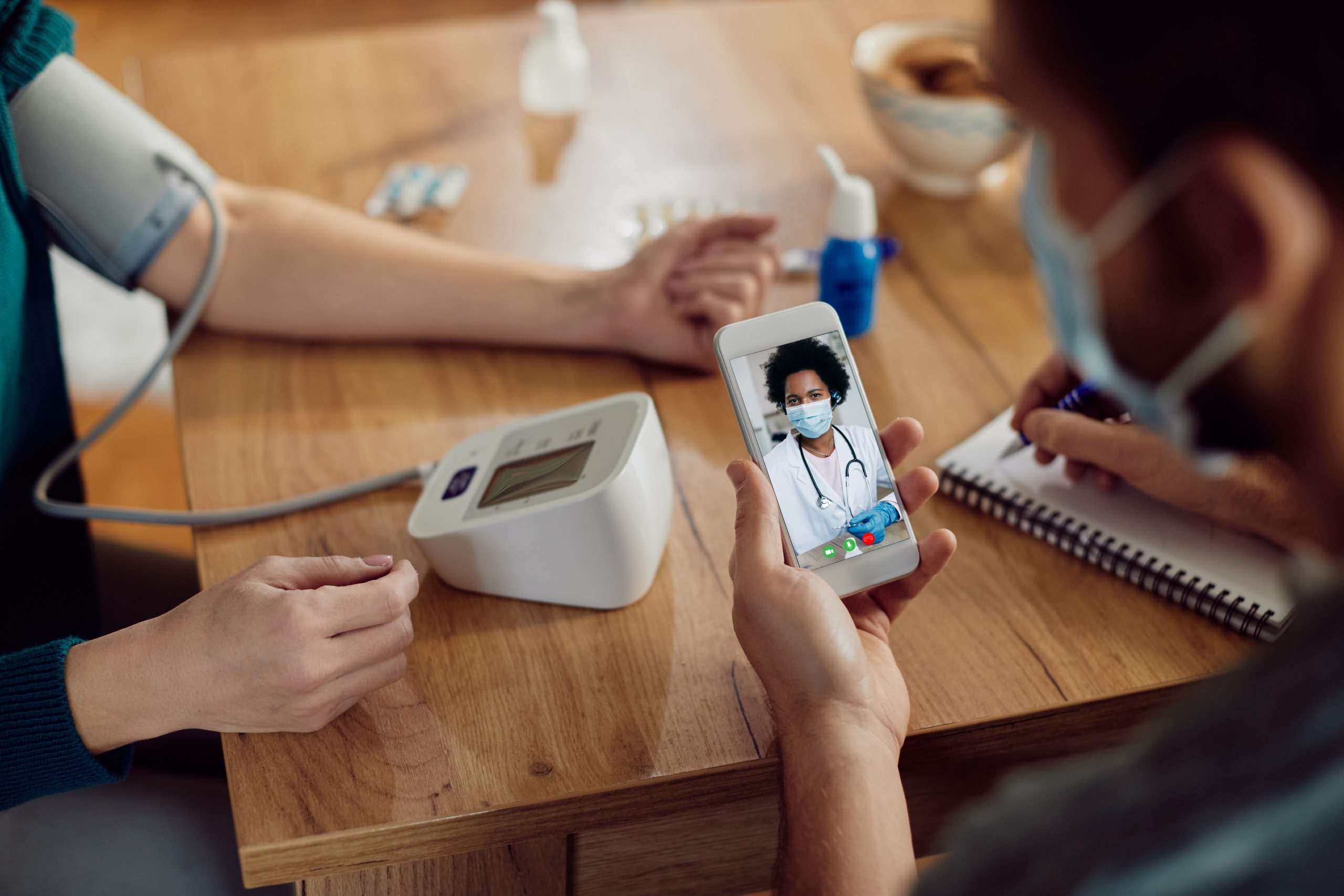Welcome to iCARE-PD
Adressing Complex Care of Parkinson’s Disease in Contemporary Society
iCARE-PD is a home-based community-centred integrated care delivery model for people living with Parkinson. A pragmatic solution to optimize integrated care, self-management support, and technology-enabled care by using a patient-centred approach.


RESEARCH
A qualitative research conducted in 5 countries to understand patient’s experiences and identify care delivery priorities.

TECHNOLOGIES
eCARE-PD: A virtual coach to support self-care at home
Discover this new technology developed using a co-design approach and involving people living with Parkinson’s, informal caregivers and healthcare professionals in the early stages of development.

RESOURCES
What is the role of Parkinson Nurses for providing personalized care?
Read what nurses have to say about their role in the implementation of a personalized care management model for people with PD.
Access to





